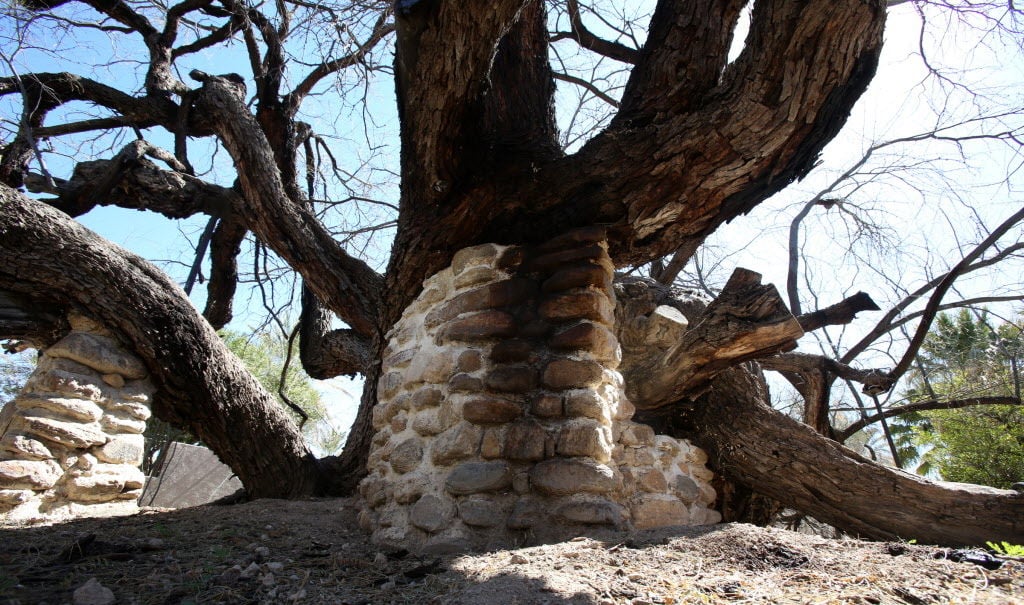Q : Recently I noticed, on two mesquite trees, a tarry-looking seepage coming out, and in some cases dripping onto the ground. What is it, and what if anything should be done about it? The only thing I can think of regarding care of the trees that might have some bearing on the matter is that they were not watered this spring, and in fact have been without significant (added) water for several months, and have looked a bit less robust than usual this spring in terms of leaf output.
A: What you are seeing is called bacterial wetwood or slime flux. Slime flux is caused by the infection of sapwood by several bacteria and is a problem with mature mesquites. The disease-causing microorganisms are found in the soil and probably gain entry above or below the soil line through wounds or pruning cuts. After several years, affected areas will exhibit a water-soaked appearance (wet wood). Gas is produced by the bacteria (and possibly yeasts) that force out a foul smelling liquid from cracks and wounds. The liquid is dark brown to black in color.
Infected trees live many years and slime flux is more of a nuisance that requires periodically a strong, hard stream of water to prevent staining of patios and cars. Seriously infected branches may need removal if they present a safety hazard. The old remedy of placing drainage tubes into the infected areas is not recommended, and may in fact, present more entry sites for the disease.
Regarding the water schedule, I recommend a good soak of the root zone out near the edge of the crown of the tree every three weeks during the growing season down to about 36 inches. Of course you can hold off during the monsoon season if you get good rains and during the winter as well.
Peter L. Warren is the urban horticulture agent for the Pima County Cooperative Extension and the University of Arizona. Questions may be emailed to plwarren@cals.arizona.edu.





